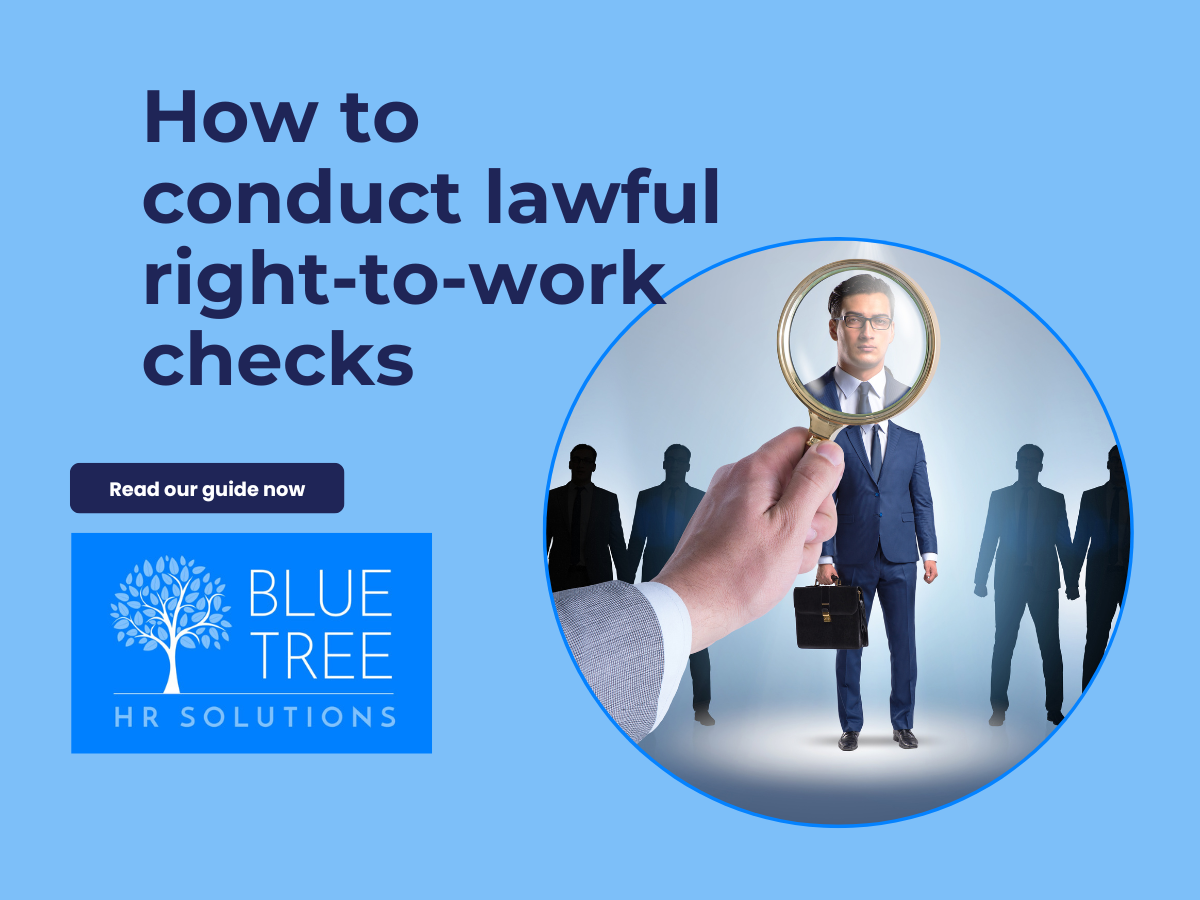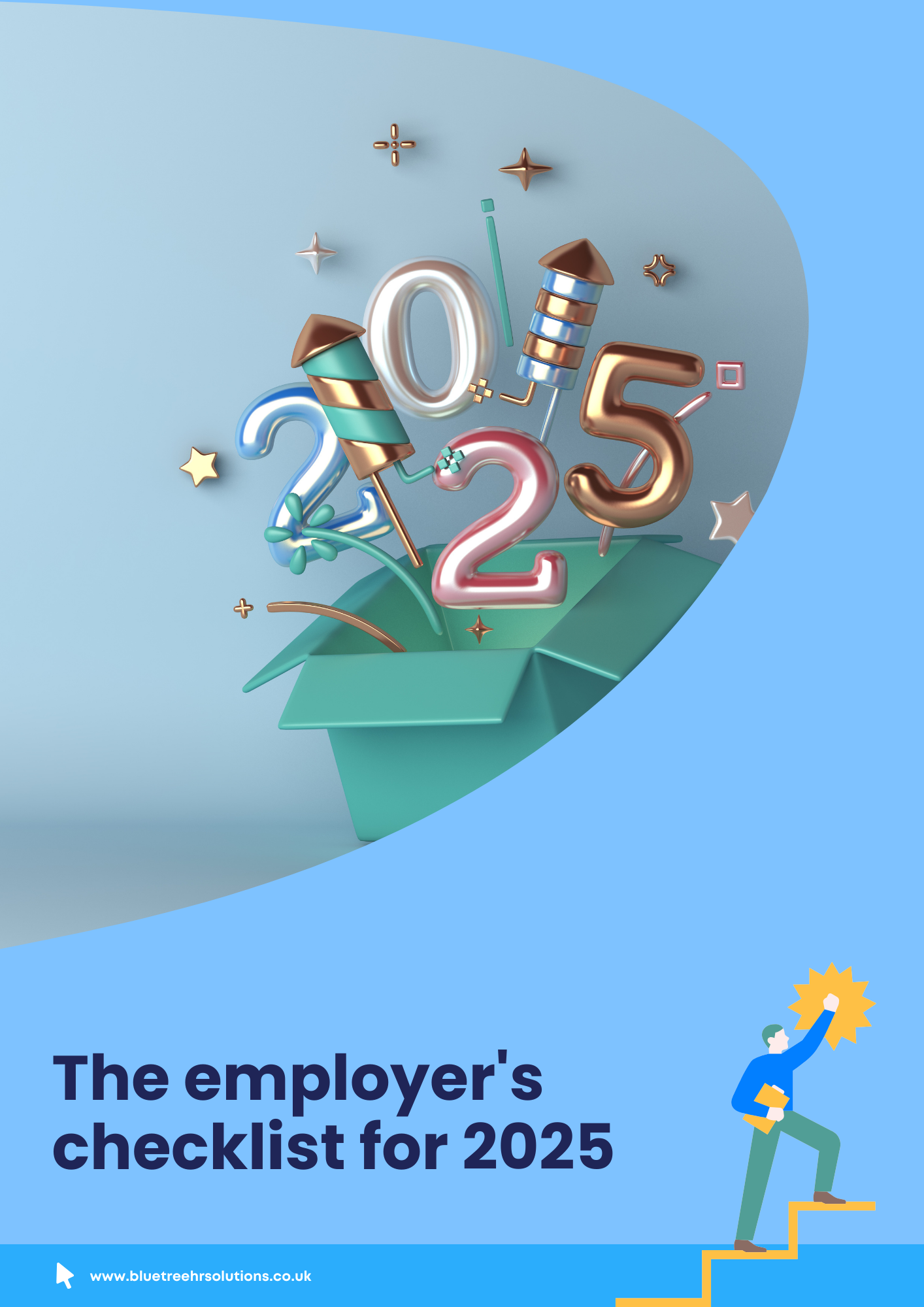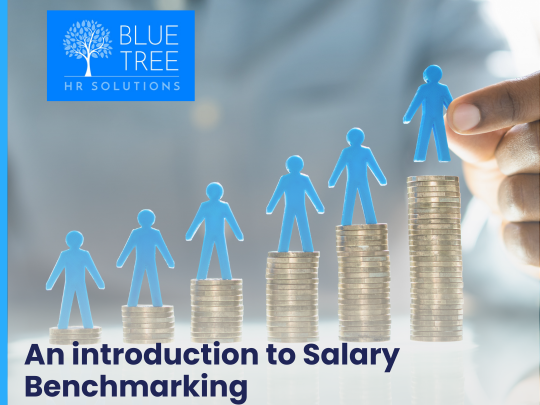When it comes to managing people well, having access to the right HR advice and guidance can make all the difference. For small and growing businesses especially, HR isn’t just about compliance; it’s about creating a workplace where people feel supported, treated fairly, and able to do their best work.
At Blue Tree HR Solutions, we believe HR should feel human. Rooted in empathy, clarity, and care, good HR helps businesses grow sustainably while looking after the people at their heart.
What Do We Mean By HR Advice And Guidance?
HR advice and guidance is the ongoing, practical support that helps employers navigate people‑related matters with confidence. Rather than reacting to problems when they escalate, it is about having a trusted source of expertise to help you make informed, fair decisions every step of the way. This is where clear, proportionate HR solutions provide reassurance and consistency.
This kind of support blends technical knowledge of employment law with a deep understanding of people, relationships, and workplace culture. It recognises that every organisation, like every individual, is different.
Why HR Advice And Guidance Matters For SMEs
For many SMEs, there isn’t an in‑house HR team, and that’s where tailored HR advice and guidance become invaluable. Many organisations benefit from flexible HR services and solutions that combine retained HR support with ad hoc HR support, allowing them to access expert guidance as and when people issues arise. Without it, business owners can feel isolated, unsure, or overwhelmed when dealing with people issues.
Having the right support in place helps you to:
Make confident, legally sound decisions. Treat employees consistently and fairly. Reduce the risk of disputes or claims. Build trust and engagement across your team. Protect both your people and your business.
Most importantly, it allows you to focus on leading your business, knowing your people practices are aligned with your values.
Key Areas Where HR Advice And Guidance Support Employers
Effective HR advice and guidance covers the full employee lifecycle, offering clarity and reassurance at each stage. When delivered as part of practical HR services and solutions, it adapts to the changing needs of your business.
Recruitment And Onboarding
Getting things right from the start sets the tone for the whole employment relationship. Support here includes writing fair, inclusive job descriptions, running compliant recruitment processes, issuing clear contracts and offer letters, and creating welcoming onboarding experiences.
Performance Management
Performance issues are rarely just about capability. They are often about communication, expectations, or support. Practical HR guidance helps you set clear objectives, hold constructive conversations, manage underperformance fairly and lawfully, and support development and growth.
Absence, Well-being, And Flexibility
People are human, and life happens. Thoughtful HR advice and guidance helps employers manage sickness and long-term absence, support mental health and wellbeing concerns, respond to flexible working requests, and make reasonable adjustments, all while balancing compassion with business needs.
Discipline And Grievance Matters
These situations can feel daunting. Having calm, expert guidance ensures processes are fair and consistent, legally compliant, and handled with dignity and respect.
This protects everyone involved and helps maintain trust, even in difficult moments.
Policies, Compliance, And Best Practices
Up-to-date policies provide clarity and consistency. Ongoing HR support helps you keep pace with changes in employment law and evolving best practice, informed by recognised guidance such as that published by Acas, without losing sight of your culture and values.
A People‑First Approach To HR Advice And Guidance
At Blue Tree HR Solutions, our approach to HR advice and guidance is grounded in respect for people, for communities, and for the environment we all share. We work in partnership with our clients, taking the time to understand their business, their challenges, and their values.
We believe people do their best work when they feel valued. Fairness and kindness strengthen workplaces. Sustainable businesses put people at the centre.
Just like tending a healthy tree, good HR requires patience, care, and the right support to help people and organisations grow together.
How The Right HR Advice And Guidance Can Help Your Business Thrive
When you have trusted HR advice and guidance behind you, you’re not just managing risk – you’re building a positive, resilient workplace. One where conversations are handled with confidence, challenges are addressed early, and people feel genuinely supported.
If you’re looking for HR support that combines expert knowledge with warmth, empathy, and plain‑English advice, we’d love to help. Our HR solutions include retained HR partnerships as well as responsive ad hoc HR support. This means you can access trusted HR services and solutions, whether you need ongoing support or one-off, ad hoc HR advice, without unnecessary complexity.
Get in touch with Blue Tree HR Solutions to explore how our people‑centred HR advice and guidance can support you and your business to grow, naturally and sustainably.
If you have any questions on the topic or have any other HR issues you would like help with, please get in touch.














